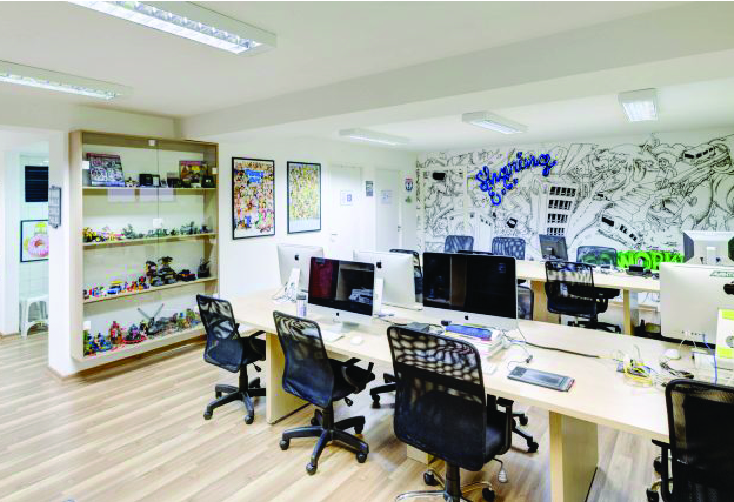The real estate industry in Brazil has taken a hit from the country’s economic crisis. Amid a shrinking economy and high unemployment rates, CRE vacancy rates and lease prices have skyrocketed.
CNN Money reported early in March this year that, “Latin America’s largest country is still crawling through its worst recession in its history. (…) It’s the country’s longest recession with eight consecutive quarters of contraction.”
A more recent article by Bloomberg (July 26) paints the beginning of a brighter future. “Vacancy rates for prime-quality commercial real estate in Sao Paulo started dropping in September for the first time in five years, a decline that has continued through May as growing companies gobble up space and longtime Brazil investors indicate it’s time to buy.”
In desperate times, landlords began cutting deals with potential tenants. Matias Velazquez, Founder and CEO of coworking space Sharing E.C., told Allwork that “those looking to rent space could negotiate up to 2 years without paying rent if they signed long-term leases.”
Flexible workspace operators can thrive in times of crisis (i.e. Brexit). Economic uncertainty means that businesses don’t want to make long-term commitments, which leads companies to explore more flexible options — including alternative workplace solutions.
Brazil hasn’t been much different.
In the past five years, coworking spaces began sprouting in Brazil’s largest cities. Velazquez tells us that within a radius of about 1 mile (1.6km) from his workspace, there are at least 19 other coworking spaces — including a WeWork and Spaces.
Competition has always been strong in Brazil, and WeWork’s official arrival a few weeks ago made competition even more aggressive.
Although Velazquez doesn’t have the full details, he stated that WeWork was able to negotiate “really good” deals with landlords.
WeWork’s arrival in Brazil was announced last year, giving some operators time to prepare for increased competition, but even so, Velazquez tells us that they were not expecting the domino effect that has ensued since.
In June last year, Sharing E.C. bought a 10-story building to expand its workspace portfolio and to be able to offer to the public a more diverse set of workplace offerings. It was also a strategic move to help position itself as a leader in the industry prior to WeWork’s opening.

Yet, just a few weeks after WeWork’s location opened, Velazquez admits that “WeWork is not the one I have to fight against.”
Though the doors to the coworking giant didn’t open until July this year, their marketing efforts began early in January. And according to Velazquez, “they’ve even reached the point of dumping.”
“WeWork’s prices are really low, compared to that of other workspace providers in the area.” This might have something to do with the fact that it is likely that WeWork isn’t yet paying rent.
“I lost 2 of my largest members to WeWork. Granted, they had used WeWork in other countries before and were familiar with the concept, but it was also because they offered them a deal that I could not match,” Velazquez tells us.
And this is what has powered the dog-eat-dog strategy that operators in Brazil are forced to implement today.
“When I lost those two clients, I put out a promotion and ended up attracting new members. These members, however, came from a fellow coworking space — and this is something that we’re seeing across the industry.
“Various spaces have been forced to close as they lose members to other operators.”
“WeWork is nearly at full capacity in 2 buildings spanning approximately 32,200 square feet. For every member or client I lose, I have to come out with a special deal or price to make up for it, and independent operators are preying on one another as a means to survival.”
Velazquez admits this isn’t the best practice, which is why he is also repurposing some of the space in his building. “We have coworking space and private offices in the building, and now we are seeking to add one or two bars as well as expanding event space.”
In the long-run, Velazquez believes WeWork’s arrival will help educate the market and open more opportunity for growth. In the meantime, however, it’s the survival of the fittest.
“I have to fight against my neighbors, not WeWork.”
WeWork is currently operating one space in Sao Paulo, and plans on opening 5 more in the South American country — 3 more in Sao Paulo and 2 in Rio De Janeiro.
















